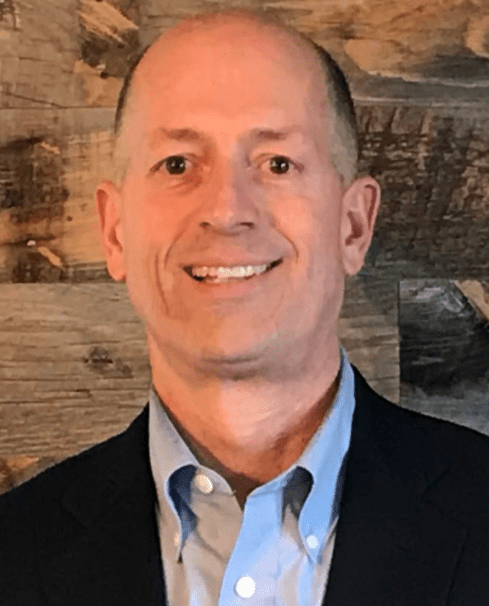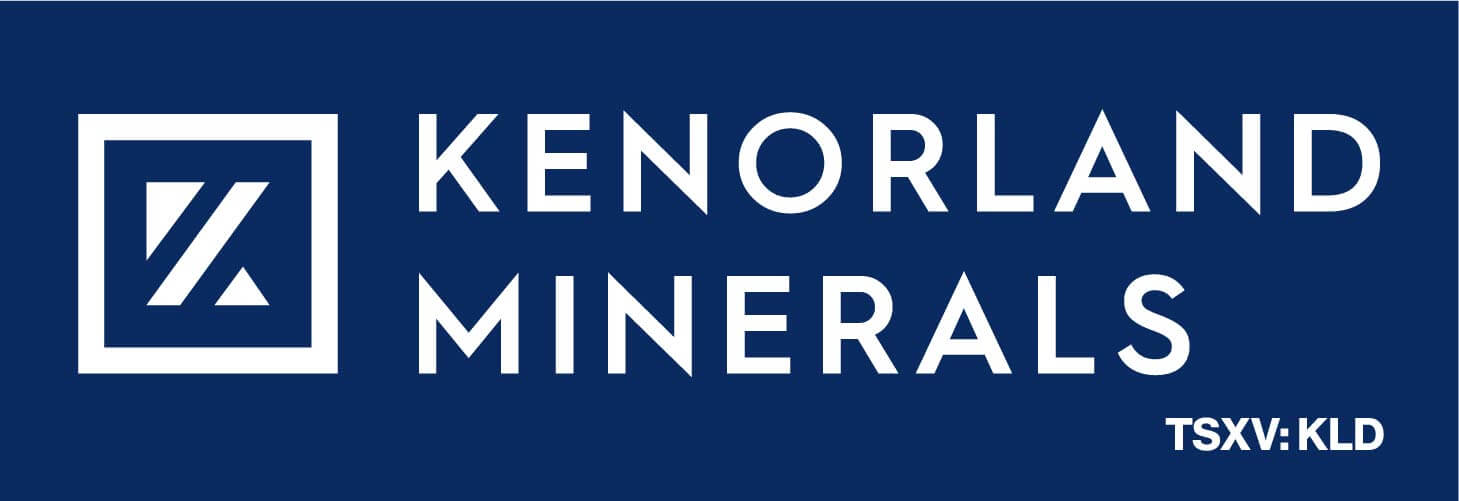Greg Dickerson Podcast – Entrepreneurship, Investing, Real Estate, Coaching

Sign up for my free trading newsletter so you don’t miss the next opportunity!
Welcome to the Technical Traders podcast. The show that brings you technically proven strategies and trade ideas from experts around the world. We’re going to help you make more money with less risk so that you can take your trading to the next level. Now here’s your host, Jim Goddard.
Jim Goddard: 00:49
My guest is Greg Dickerson. He’s the CEO of Dickerson International. You can find him online at dickersoninternational.com. Welcome to the show.
Greg Dickerson: 01:00
Hey, thanks for having me.
Jim Goddard: 01:02
Greg, where are you? And can you tell us a bit about Dickerson International?
Greg Dickerson: 01:07
I’m located in Charlottesville, Virginia, just outside of Washington, DC, home of the University of Virginia and the Darden School of Business, one of the top business schools in the country. Still, Dickerson International is my school of entrepreneurship. I’ve been an entrepreneur since 1997. And my long story short is I’ve bought, developed and sold over 250-million-real estate, started 12 different companies from the ground up, built and renovated hundreds of custom homes, commercial buildings, developed mixed subdivisions, things like that. So, that’s me in a nutshell. So what I’ve done is I’ve packaged everything that I know and everything I’ve learned over the past 25 years doing all of those things into some online courses. And then, I also offer one-on-one coaching. I work with people all over the world, doing all kinds of things, teaching them how to be a real estate developer, how to invest in real estate, how to do big commercial and multi-family real estate deals, and how to raise capital. I teach people how to buy companies, how to start companies from the ground up, and how to grow and scale their existing businesses. So that’s what I do and what Dickerson International is all about.
Jim Goddard: 02:16
Wow. So you take a good idea, and you make it bigger and better.
Greg Dickerson: 02:21
Exactly. I love to build things. I’m a builder. I’m a natural-born entrepreneur. I started as a young kid knocking on doors. I’m talking, you know, seven, eight years old, cutting grass, raking leaves, washing cars, babysitting your kids, whatever you needed to get it done. I would knock on your door and say, Hey, my name’s Greg. I live down the street, and I need to make some money. And my dad taught me at a young age; that if you want something, you need to go figure out how to make the money to buy it because I’m not going to give it to you. So, I wasn’t raised, you know, we were a middle-class family. My dad was career military. Nobody in my family were entrepreneurs. And you know, that’s just how I am wired. And I love to create. I love to build things. I love to solve problems. Make something out of nothing, and that’s what entrepreneurs do. We make things happen and get things done. We solve problems, and it’s very creative. It’s a lot of fun. Every day’s different, and every situation’s different. And like I said, I work with people all over the world doing all kinds of different things. So it’s very intellectually stimulating for me.
Jim Goddard: 03:17
So how did you get started with investing?
Greg Dickerson: 03:22
So back in 2008, 2009, my career was mainly creating small businesses to generate cash and to invest in other assets. And for me, I was a remodeling handyman contractor and ended up turning that into a million building development business in about seven years. And I built 12 other companies along the way at the same time. And as I did all that 2008, 2009 happened, that I had to pivot. And I didn’t know anything about stocks, really. I kind of followed markets a little bit, but I had never invested in stocks, never invested in anything like that. When 2008, 2009, it happened. I had a good friend who had a restaurant down in the area where I was located, and he came from Wall Street and left that career and opened a little breakfast joint.
Greg Dickerson: 04:07
I was living on the outer banks of North Carolina at the time, which is where flight originated, where the Wright brothers took off. And he said, Greg, you said, you know, this is an opportunity to create generational wealth like we’ve never seen. I’m like, what are you talking about? He said the market is crashing. It’s about to hit rock bottom, and we can get in now. And, you know, everything you’ve ever needed to pay for will be taken care of with just a small investment. So we got together in his little breakfast shop and started watching the markets and trading stocks. And I made my first investment at the bottom of March 2009 when the Dow was 6,000 and the S&P was 600. And I was buying Ford. I think my first purchases were Ford stock at a .90, City Bank at like .19, Bank of America, I don’t know, .00 something. So that was my first foray into traditional markets.
Jim Goddard: 04:58
Is there anybody you really admire or who influenced you to become involved in real estate, financial markets, or coaching?
Greg Dickerson: 05:06
Yeah, so it all started with Rich Dad, Poor Dad. That was the first book that I read that really opened my mind to, you know, creating businesses that generate cash to invest in other assets. When I read that book, I wanted to be a rich dad. I didn’t want to be Robert Kiyosaki. I wanted to be the rich dad that he was talking about. Because he owned all the real estate. He had all the businesses, and he was making all the investments. So you know, I studied that, and that’s where I just said, okay, that’s what I’m going to do. And then, of course, back in the day, Donald Trump was hot in terms of his real estate, so I read his book for real estate. I read Sam Zelle, you know, there were a few other real estate investors that I had followed.
Greg Dickerson: 05:43
And then, of course, Warren Buffet for stocks, he was all the rage back then, for stock markets still is, I guess, but really back then he was really carving a path in stocks and then of course, you know, other people along the way, but the big core, pivot point for me was reading Rich Dad, Poor Dad. That’s where that really opened my mind to understanding how to put a lot of assets together, generate cash flow to pay for the things you need to sustain your life, and then invest the rest.
Jim Goddard: 06:12
What’s your investing philosophy? What set of principles, beliefs, or experiences drive your decisions?
Greg Dickerson: 06:20
I’m opportunistic. So I look for value wherever I can find it. And I like to make fewer bigger moves. I like to get in at the bottom. So you know, in stocks, it was 2008, 2009, and then I made big moves on every major pullback in the markets, including March 2020, that was my last big deployment of capital into the markets. And those are the types of things that I look for because I’ve been around long enough in cycles in real estate and stocks where good times never last and bad times never last. So I look for the big pullbacks, and that’s where I make nice moves, and then I exit at the top. So my main philosophy that I always tell everybody is that it’s more important to know the top than the bottom.
Greg Dickerson: 07:03
And I exit at the top, take my chips off the table. I’m not afraid to go to cash and sit in cash and wait, so from equities, that’s kind of how I make those moves, and I compound cash. That’s always my goal to grow and scale a pile of cash real estate; it’s been the same way. I want to buy value, add value, create value, and then exit when the time is right. So that’s kind of how I approach things and look at things. And from a real estate standpoint, it could be from the ground up. It could be adaptive reuse; it could be a major value add. I’m not a margin player. I’m not looking for yield. I’m not a yield guy; I’m a margin guy. So I’m looking for big moves, big margins, not little yields.
Jim Goddard: 07:44
How important is it for a person to have some kind of philosophy they stick to when they’re investing?
Greg Dickerson: 07:52
It’s extremely important. So that’s the key to success in any business, any investment, you need to have a thesis, and you need to have the discipline to stick to your thesis, and you need to be self-aware enough to where if your thesis is wrong or not working, you need to pivot and make a new one. But if you’re day trading or swing trading, obviously you need a system, and you need the technicals that you operate by, and you want to journal those things and stay steady with that approach. And if you’re more opportunistic like me, then you just stick to your entry and exit valuations and your margins so that you know that you’re covered. So it’s extremely important. Discipline is huge.
Jim Goddard: 08:29
We’ll have more with Greg Dickerson right after this.
TheTechnicalTraders.com: 08:33
Did you miss the huge gains in growth and momentum stocks with your trading? Do you want to own the hottest stocks and sectors during the next stock market rally, the Ban best asset now trading alert newsletter will let you know which stocks to own, including entry targets and protective stock prices; visit www.bantrader.com to learn more.
Jim Goddard: 08:55
Welcome back. We’re speaking with Greg Dickerson. Greg, are there any investment myths that people should know about?
Greg Dickerson: 09:06
I really don’t know. I mean, you hear that you see that. And then, of course, you hear Santa Claus rallies, and we didn’t have that this year. I don’t know that those things hold true. They might. I haven’t really tracked them and backcheck them. But if you are going to adhere to something like that and buy into it, you definitely want to fact-check it and make sure that it’s accurate. And from what we’ve seen in the markets, really nothing is. Markets are cyclical. You know, these days, headline risk, you know, headlines can move markets in a major way. It’s a very different market now than it used to be. But like I say, the most important thing to know is the top. And I called the top 2018, 2019. I called the top recently back in November, December, and I invested in crypto as well as equities and real estate. So again, the key is to know that top.
Jim Goddard: 09:57
What favorite type of analysis or indicator do you find helps you time your investments?
Greg Dickerson: 10:03
In the markets, you know, it’s major moves. So I look for when I’m deploying, I’m looking for 10% or better pullbacks to make big moves on in terms of stocks and equities. Crypto’s a little different because crypto can correct 30, 40%. So I just look for those major pullbacks that are moving to previous, you know, support and resistance levels. I look at the moving averages; of course, the 200 days is a big one. Major moving averages and some, you know, retracement levels are kind of important when you’re looking at stocks and swing trading and, you know. And then, I also look at the macro. A lot of people say, show me the charts, and I’ll tell you the news. Well, news moves markets, especially right now with the geopolitical climate, with interest rate fed policy, we’ve been in a bull market since 2009 and, an easy Fed, monetary policy environment. So very different climate that we’re getting ready to move into now. So you really have to pay attention to the macro as well. So I look at the macro, then I take that, apply technicals to it and make my decisions based on that. But if I’m looking to deploy, I want to deploy on at least a 10% or better pullback in the equities.
Jim Goddard: 11:17
You talked about a big influence in your life in the book Rich Dad, Poor Dad; any other recommended reading you could give our listeners.
Greg Dickerson: 11:26
Yeah. So it depends on what you’re looking to do. Generally, what I’ve done in my career is I’ve found the best in the businesses doing what I want to do, and I go study them. So I love to read biographies. So I’ve recently read a great biography—Steve Schwartzman, Michael Eisner, Warren Buffet, Sam Zelle. Donald Trump; love him or hate him early in his career. I read how he did what he did. So Keith Hall a big developer in Texas. So, you know, I’d love to read biographies, some books, and learn from people you know, the intelligent investor by Ben Graham. Although, you know, today’s world is very different from those guys grew up in, in terms of value investing and things.
Greg Dickerson: 12:10
Of course, as we know, valuations have been kind of out the window. But as far as business and mindset books, all of the greats. So my core three books that really changed my life were Rich Dad, Poor Dad, Think and Grow Rich by Napoleon Hill, and the Power Positive Thinking by Norman Vincent Peale. So those two books, especially, and then How to Win Friends and Influence People, Dale Carnegie. But you know, anything by those guys and then all the classics like Anthony Robbins, Zig Ziegler, Jim Rohn, Brian Tracy. All of the sales, success, and mindset gurus, if you want to call them. But I’m very highly self-educated. I’m really into personal, professional development. I’ve never had any music on any of my devices, going all the way back to the Sony Walkman. It was all business books and mindset, personal, professional development. And then the, you know, then the CD Walkman, and then, you know, I’ve got the 80-gig iPod, nothing but business books on it. And then even today, that’s all I listen to or you know, like this business podcast and podcast, things like that.
Jim Goddard: 13:19
If you’re an investor or potential client for somebody, how can you spot a scam? You’ve been around long enough; I’m sure you can sniff one out in a second, but for people getting into investing, so many people say things like guaranteed returns, and you’ve been around long enough, so you know, there is no such thing. How do you sniff them out?
Greg Dickerson: 13:39
Well, that’s one, if somebody’s offering a guarantee or can’t fail, if it sounds too good to be true, those types of things. In today’s world, there are some things that are too good to be true that actually work. But, as far as the individual goes, if they don’t know their business and know their numbers at an intimate level, then that’s a red flag. You know, if somebody’s desperate for the deal, you have to send your money today, or you’re going to miss out. You know, that’s a red flag. And then, of course, you know, anybody who’s guaranteeing anything or telling you that, you know, the number just goes up that they’re doesn’t go down, and it’s never going down, and it will never go below a certain level. Those types of things are red flags. But, you know, today it’s pretty tricky. There are a lot of scams out there and very sophisticated scams.
Jim Goddard: 14:23
What’s the best advice you ever received?
Greg Dickerson: 14:26
Never stop learning.
Jim Goddard: 14:30
Simple as that.
Greg Dickerson: 14:32
Simple as that, never stop learning. And I mean, there are all kinds of different pieces of wisdom I’ve received along the years. But one thing I’ve learned in my career is the more you know, the more you realize you don’t know, and it’s what you don’t know that really holds you back. But even more important to that, you know, Mark Twain, “it’s what you think, you know, that just ain’t so.” You know, that can get you. Knowledge is everything. And then, you know, the application of that knowledge to the right vehicle at the right time and the right way with the right amount of leverage, you know, is really the key. But yeah, at the end of the day, I would not be where I’m at if I had not continued my education and just kept pouring into myself. So when you sum it all up, that’s probably the best advice I’ve ever received is just never stop learning. Never think that you’ve arrived. You can always go deeper. You can always learn more, and there’s always something out there that you absolutely don’t know that can just be a game-changer for you.
Jim Goddard: 15:28
My two favorite Mark Twain sayings, “the hardest thing in the world is to convince a fool that they’ve been fooled” and “golf, a perfectly good walk ruined.” Is there something you wish you would’ve known before you started trading and investing?
Greg Dickerson: 15:49
Yes, I mean, a lot more. I didn’t know anything before I started trading and investing. So, you know, I wish I would’ve had more education early on in that regard, you know, what I knew back then was work hard. You know, the harder you work, the better opportunities you’re going to have. So I just didn’t know what I didn’t know. So what I wish I knew back then was obviously what I know now was that you know how to raise capital and do bigger deals early on that I just didn’t think I could do. But when it comes to investing in, you know, equities and things like that, I just didn’t know. I just didn’t know anything about stocks, didn’t know anything about the markets and, you know, gold. I had one guy, you know, years ago it was probably 2004. The gold bugs around me were all older and, you know, 200, 300 ounces back then, and they were telling me Gold’s going to hit 1200 an ounce. And I’m like, you’re crazy. And man, if I would’ve put a little chunk of change in gold back then, it would’ve worked out pretty good.
Greg Dickerson: 16:43
And then, of course, the big one, I didn’t know anything about Bitcoin or cryptocurrency when that came around and, you know well, I would’ve loved to have known about that ten years ago and put, you know, a thousand bucks in 10 years ago would be worth some billions of dollars right now.
Jim Goddard: 16:56
Sure. Are non-fungible tokens, are they in the same category as Bitcoin was 12 years ago?
Greg Dickerson: 17:06
No, no, not at all. Bitcoin’s a very different thing in and of itself. It’s a digital gold. It’s digital property. So it’s very different than NFTs. NFTs are a lot of different things, but Bitcoin is one thing, and it’s a limited supply of one thing that’ll ever be created. And it’s got a certain amount of interest at an institutional level, where NFTs are fads and trends that will come and go.
Jim Goddard: 17:35
Before we go, is there any topic or financial or business practice that you’re really passionate about?
Greg Dickerson: 17:43
In terms of business practice, leadership, obviously, that’s one of the keys to the success that I’ve had is developing myself into a great leader and teaching and helping other people do that from a business practice and, from an investment standpoint, just, curiosity in general, just always being curious, always trying to figure out why and how things work and, you know, understanding that everything these days, it’s all trends. Markets are cyclical; things come and go, good times never last and bad times never last. It’s all about the trend, understanding the trend, and investing and taking advantage of that trend and not going against it.
Jim Goddard: 18:21
Greg, thank you so much for being here on technical traders.
Greg Dickerson: 18:25
I appreciate it. Thank you for having me.
Jim Goddard: 18:27
My guest has been Greg Dickerson, CEO of Dickerson International. You can find him online at dickersoninternational.com. I’m Jim Goddard.
TheTechnicalTraders.com – your source for technically proven strategies.
The technical trader’s podcast or an expression of opinion only, and should not be construed as investment advice or recommendations to buy or sell any financial instrument. This information is for general information and educational purposes. Only guests on the show are not compensated for their participation to view our full disclaimer, visit our website: www.TheTechnicalTraders.com
Greg Dickerson Podcast Video
The post Greg Dickerson Podcast – Entrepreneurship, Investing, Real Estate, Coaching appeared first on Technical Traders Ltd..





